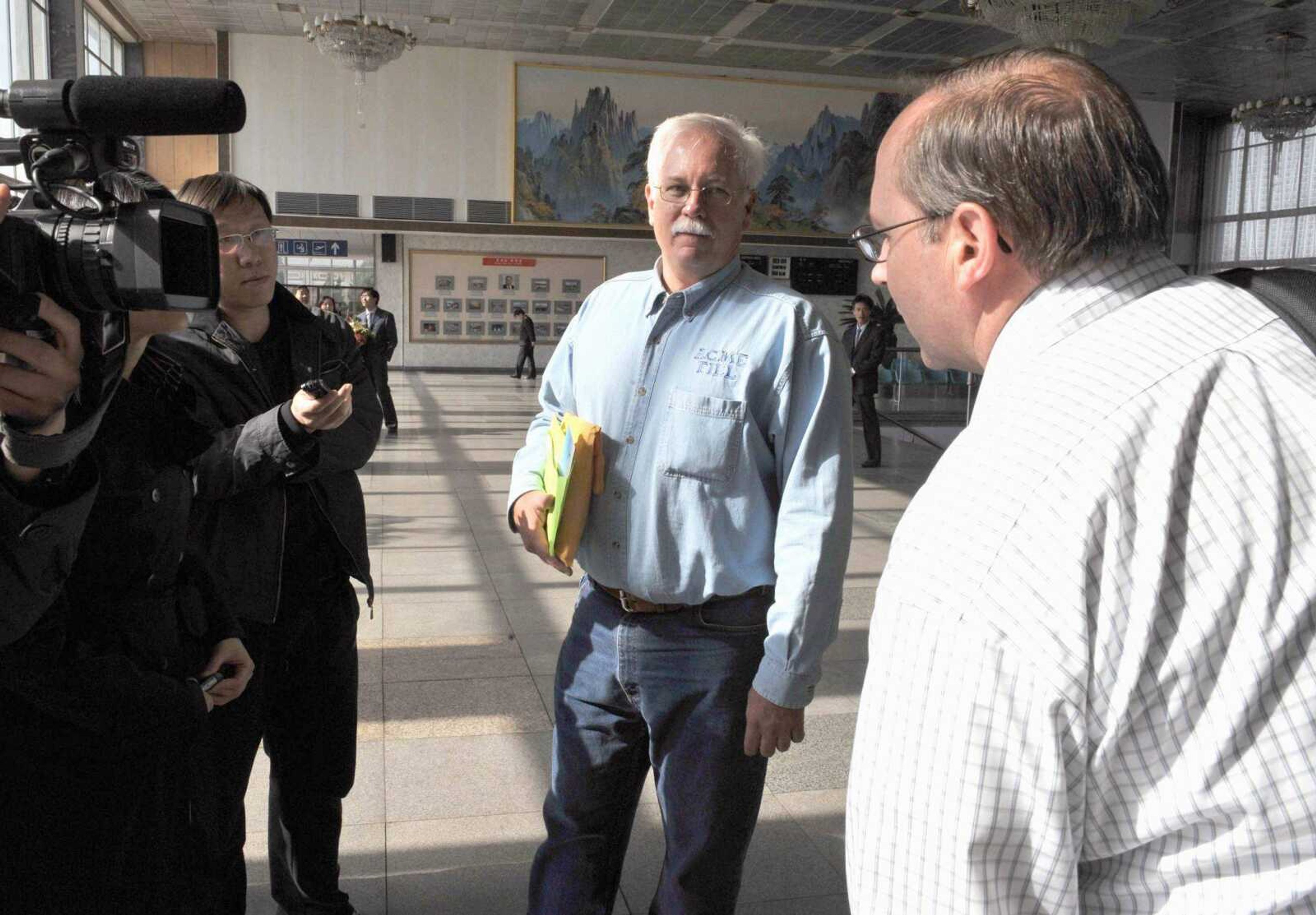U.S. nuclear experts pull out of North Korea
SEOUL, South Korea -- U.S. monitors of North Korea's nuclear program left the communist nation after the regime ordered them out and vowed to restart its reactor in anger over U.N. criticism of its recent rocket launch. The four Americans arrived Friday in Beijing on a flight from Pyongyang but declined to speak to reporters. Their departure came a day after U.N. nuclear inspectors left the North. One U.S. official remains in Pyongyang and will leave Saturday, the State Department said...
SEOUL, South Korea -- U.S. monitors of North Korea's nuclear program left the communist nation after the regime ordered them out and vowed to restart its reactor in anger over U.N. criticism of its recent rocket launch.
The four Americans arrived Friday in Beijing on a flight from Pyongyang but declined to speak to reporters. Their departure came a day after U.N. nuclear inspectors left the North. One U.S. official remains in Pyongyang and will leave Saturday, the State Department said.
The pullout of all international inspectors will leave the global community with no onsite means to monitor North Korea's nuclear facilities, which can yield weapons-grade plutonium if restarted.
North Korea vowed earlier this week to restart its nuclear program and quit six-nation disarmament talks because the U.N. Security Council criticized its April 5 rocket launch as a violation of resolutions barring it from ballistic missile-related activity.
Pyongyang says the liftoff was a peaceful satellite launch, but other nations believe it was a test of its long-range missile technology.
The North's angry reaction threw prospects for the already-stalled disarmament talks into further doubt. The U.S., China, Japan and South Korea and Russia have urged the North to return to the negotiating table, but it has not responded.
Russia's Foreign Minister Sergey Lavrov plans to visit North Korea next week, a duty officer at the Foreign Ministry in Moscow confirmed, saying more information about the trip will be released Monday. The officer spoke on condition of anonymity in line with policy.
South Korea's Chosun Ilbo newspaper reported Friday that Lavrov plans to visit Pyongyang around April 24 and is likely to meet with North Korean leader Kim Jong Il and deliver a letter from Russian President Dmitri Medvedev. The newspaper cited unidentified Russian officials.
Chinese Foreign Minister Yang Jiechi said Beijing will work to continue the six-nation disarmament talks and "hopes for the development of and improvement in relations between the United States and North Korea," according to an interview in Japan's Nihon Keizai newspaper.
China is North Korea's only major ally but backed the U.N. rebuke.
Inspectors from the International Atomic Energy Agency left North Korea on Thursday after removing all seals and switching off surveillance cameras, the IAEA said.
The European Union expressed "serious concern" Friday and called on the North to reverse its decisions to expel IAEA inspectors and restore its nuclear facilities, the EU's Czech presidency said in a statement. The EU also urged Pyongyang to allow an early resumption of the six-party talks.
North Korea conducted a nuclear test in 2006 but later agreed to dismantle its nuclear program in return for shipments of fuel oil under a 2007 six-nation deal. The process has been stalled since last year by a dispute over how to verify North Korea's past nuclear activities.
Connect with the Southeast Missourian Newsroom:
For corrections to this story or other insights for the editor, click here. To submit a letter to the editor, click here. To learn about the Southeast Missourian’s AI Policy, click here.









